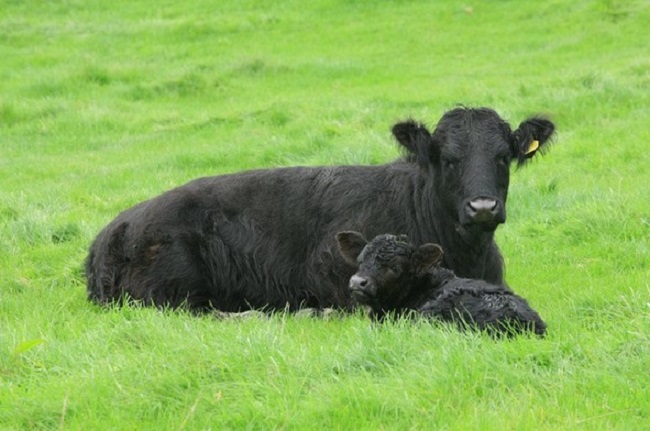Agriculture enthusiasts, farmers, and even those just interested in the animal kingdom may find themselves intrigued by the variety of Black Cow Breeds.
Characterized by their striking dark coat, Black Cows aren’t just aesthetically fascinating – they also hold considerable importance in livestock farming due to their meat, milk, and adaptability.
This article provides an in-depth exploration of popular Black Cow Breeds, their origins, characteristics, and roles in agriculture.

The Angus: King of Black Cow Breeds
Perhaps the most well-known Black Cow Breed is the Angus, originally from Scotland. These all-Black Cows are naturally polled (hornless) and appreciated for their rapid growth and excellent meat quality, making them a top choice for beef producers worldwide.
Read Also:
The Angus Breed is split into two distinct types: the Black Angus, which is the focus here, and the Red Angus.
The Galloway: An Ancient Breed with Hardy Characteristics
The Galloway Breed, another native of Scotland, is renowned for its hardiness. These Black Cows (though they can also be of other colors) are well-insulated with a double coat of hair, making them perfectly adapted to harsh climates.
Galloways are primarily raised for their high-quality, lean beef, but their docile temperament also makes them a favored choice for small-scale farmers.
The Black Hereford: A Blend of Productivity and Adaptability
The Black Hereford is a relatively new Breed, developed in the 20th century to combine the high productivity of the Hereford Breed with the hardiness of the Angus.
As a result, Black Herefords boast both exceptional meat quality and an ability to thrive in various climates, characterized by their sleek black coats and distinctive white faces.
The Dexter: A Small But Mighty Black Cow Breed
Originating from Ireland, Dexters are one of the smallest cow Breeds, but what they lack in size, they make up for in versatility.
These black (or occasionally dun or red) cows are dual-purpose, used for both milk and meat production. Their compact size and friendly nature make them an excellent choice for hobby farmers.
Caring for Black Cow Breeds: Essential Factors to Consider
Like any livestock, Black Cow Breeds require proper care and management. From ensuring access to ample grazing land and fresh water to providing necessary healthcare, the welfare of these animals should be a priority.
Different Breeds may have specific needs; for example, Galloways may fare well in cooler climates, while Black Herefords can adapt to various weather conditions.
Black Cow Breeds: Impact on the Livestock Industry and Economy
The influence of Black Cow Breeds on the livestock industry cannot be understated. Angus, Galloway, Black Hereford, and Dexter, among others, play significant roles in shaping the dynamics of the meat and dairy market.
These Breeds contribute substantially to global meat production, especially the Angus, whose high-quality beef is sought after by consumers worldwide. Furthermore, the adaptability of these Black Cow Breeds to different environments significantly affects their economic value.
For instance, Breeds like the Galloway, renowned for its resilience in colder climates, and the Black Hereford, known for its general adaptability, can thrive in regions where other Breeds may not, leading to more diverse and robust local economies.
Read Also:
Conclusion
The world of Black Cow Breeds is as varied as it is fascinating. Each Breed, from the globally renowned Angus to the compact and versatile Dexter, brings unique attributes and strengths to the table.
Understanding these Black Cow Breeds and their characteristics not only enriches our knowledge of livestock diversity but can also aid farmers and hobbyists in selecting the Breed best suited to their needs.
























